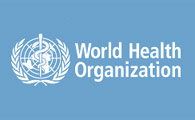The World Health Organization (WHO) warned this week that the HIV/AIDS epidemic may take a major turn for the worse in Asia unless countries urgently expand access to services to men who have sex with men (MSM).

HIV/AIDS specialists from Asian governments, regional experts and representatives from non-government organisations are meeting at a WHO conference Hong Kong from 18 to 20 February to consider strategies to deliver better services to MSM communities.
"Studies show that at present, the proportion of HIV infections being transmitted among men who have sex with men is larger and more significant than we had originally believed," said Dr Massimo Ghidinelli, WHO Regional Adviser in HIV/AIDS and Sexually Transmitted Infections. "Action needs to be taken now if a major increase in HIV/AIDS cases is to be averted. We need to target HIV prevention strategies, together with better access to health services, for men who have sex with men."
Strengthening surveillance and implementing effective interventions for HIV prevention and care among men having sex with men should be prioritised to prevent the further spread of the virus, WHO said. Enacting or enforcing legislation outlawing discrimination against people living with HIV and members of other vulnerable groups would enhance the effectiveness of the response to HIV.
Men who have sex with men have been identified as one of the most-at-risk populations for HIV/AIDS. A review in December 2007 showed that in Cambodia and Vietnam, men who have sex with men are more likely to contract HIV compared to the general population. And in China, the risk of infection by men who have sex with men is 45 times higher than for men in general. Asia is believed to have the world's largest number of men having sex with men, estimated at 10 million.
Despite this, a recent UNAIDS report showed that targeted prevention interventions are reaching only 1 percent of the MSM population. The report also showed that in most countries in Asia and the Pacific, national strategic plans for HIV/AIDS do not cover interventions for MSM and transgender individuals.
The lack of better access to HIV/AIDS services can be traced to the stigma and discrimination associated with male-to-male sex, which is frowned upon in some societies, and to breaches of human rights, including the right to better health. In addition, discrimination prevents men who have sex with men from disclosing their sexual orientation or utilising HIV services, resulting in increased vulnerability.
Participating countries in the conference, which will take place in Hong Kong, are Australia, Cambodia, China, Fiji, Hong Kong (China), Japan, the Lao People's Democratic Republic, Malaysia, Mongolia, New Zealand, the Philippines, Singapore and Vietnam.
Source: World Health Organization press release dated Feb 17, 2009 with minor edits.
Related articles (external):
Group sex and low condom use among gay and bisexual men are spreading HIV rapidly in Asia, making male-to-male intercourse the region's fastest-growing means of transmitting the deadly virus, health officials saidģ "We're really in for big trouble. There's still time to do something, but we need to act rapidly," warns Frits van Griensven, who's tracking the epidemic in Asia for the U.S. Centers for Disease Control and Prevention. - Group Sex, Trysts Without Condoms Fuel Raging HIV in Asian Men (Bloomberg)
"We are facing an emerging catastrophe," said Asia Pacific Coalition on Male Sexual Health representative Shivananda Khan. "Unless we intervene now, the level of infection over the next 20 years will double every year and the number of [affected] MSM and trans-gender people will be more than any other population in this region." - Asia facing gay sex AIDS explosion (The Standard, Hong Kong)
York Chow, Hong Kong's secretary for food and health, said most MSM do not know their HIV status and that an "important factor" contributing to the spread of HIV among the population is unprotected sex. He said, "Globally, risks and vulnerability to HIV infections are reinforced by a lack of knowledge, denial, inadequate access to treatment as well as social pressure arising from discrimination and even criminalisation of sex among men." - MSM Given High Priority in HIV Prevention Strategy, Hong Kong Official Says (Kaiser Network)
